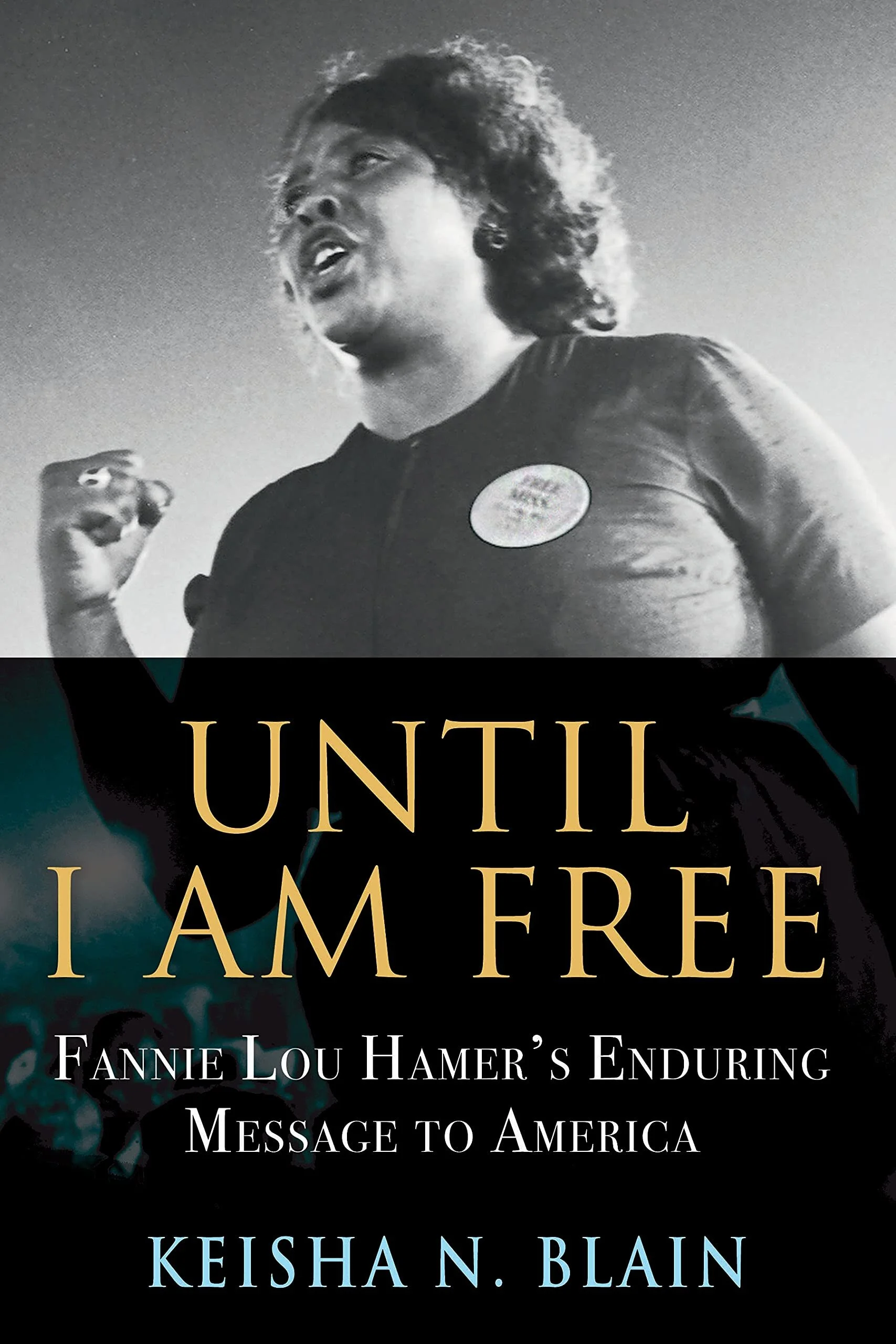Keisha N. Blain
Keisha N. Blain is a historian of the 20th century United States specializing in African American History, the modern African Diaspora, and Women's and Gender Studies. She is an Associate Professor of History at the University of Pittsburgh, president of the African American Intellectual History Society, and an editor for the Washington Post's 'Made by History' section. Blain is the author of the multi-prize-winning book Set the World on Fire and co-editor, with Ibram X. Kendi, of Four Hundred Souls.
About until i am free
“We have a long fight and this fight is not mine alone, but you are not free whether you are white or black, until I am free.”—Fannie Lou Hamer
A blend of social commentary, biography, and intellectual history, Until I Am Free is a manifesto for anyone committed to social justice. The book challenges us to listen to a working-poor and disabled Black woman activist and intellectual of the civil rights movement as we grapple with contemporary concerns around race, inequality, and social justice.
Award-winning historian and New York Times best-selling author Keisha N. Blain situates Fannie Lou Hamer as a key political thinker alongside leaders such as Martin Luther King Jr., Malcolm X, and Rosa Parks and demonstrates how her ideas remain salient for a new generation of activists committed to dismantling systems of oppression in the United States and across the globe.
Despite her limited material resources and the myriad challenges she endured as a Black woman living in poverty in Mississippi, Hamer committed herself to making a difference in the lives of others. She refused to be sidelined in the movement and refused to be intimidated by those of higher social status and with better jobs and education. In these pages, Hamer’s words and ideas take center stage, allowing us all to hear the activist’s voice and deeply engage her words, as though we had the privilege to sit right beside her.
More than 40 years since Hamer’s death in 1977, her words still speak truth to power, laying bare the faults in American society and offering valuable insights on how we might yet continue the fight to help the nation live up to its core ideals of “equality and justice for all.”


